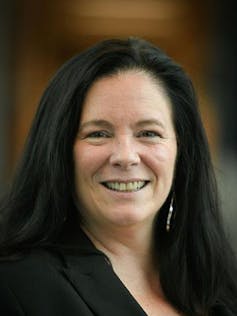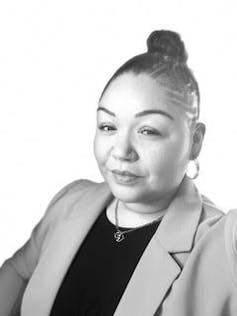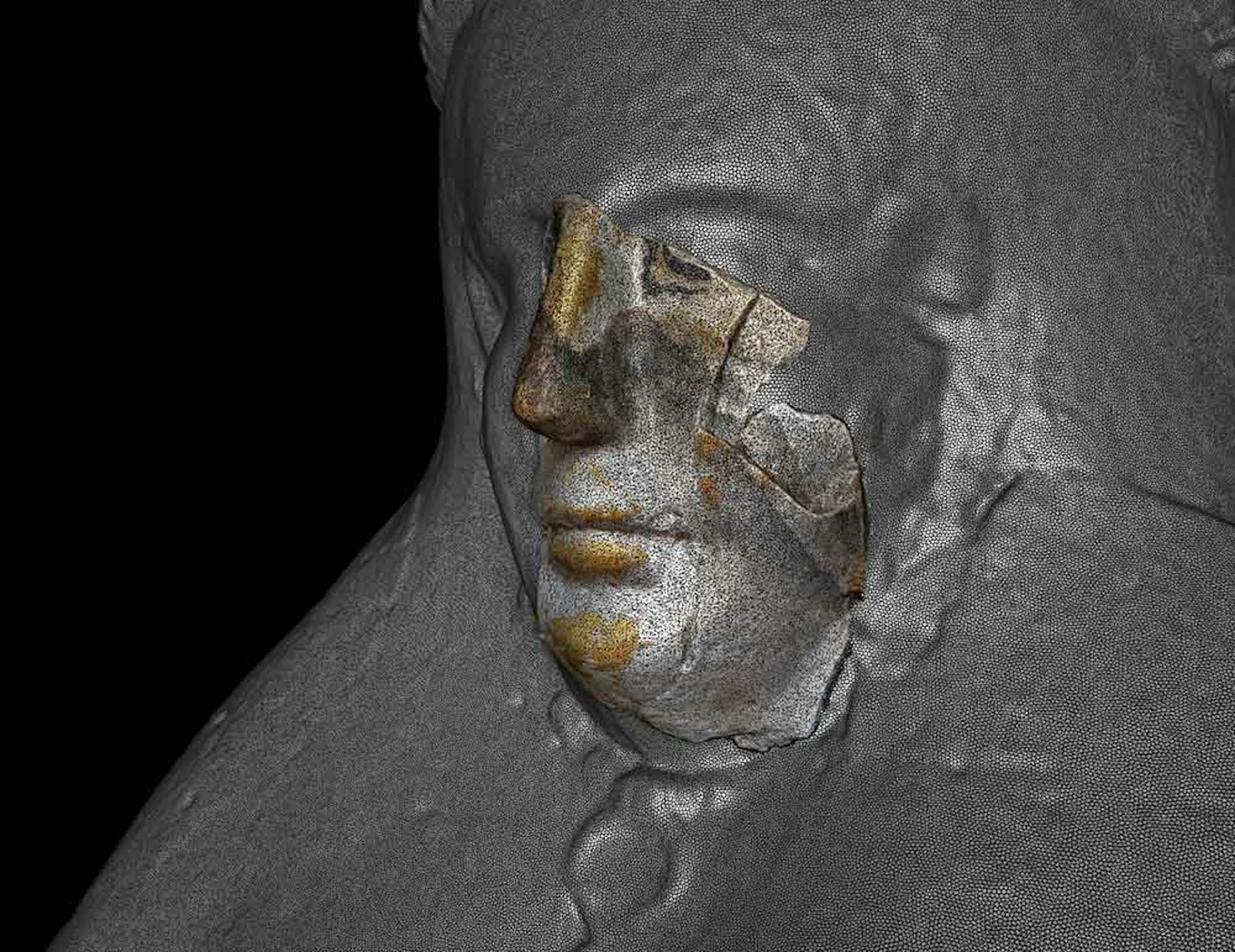What the 'doctor' title means for women of color with doctorates
Three women of color with Ph.D.s weigh in on their experience being in the academic field.

Editor’s note: In a Dec. 11 Wall Street Journal op-ed, conservative author Joseph Epstein sparked widespread backlash, especially from women in academia, when he chided incoming first lady Jill Biden for using “Dr.” before her name while she is not a physician. Biden, a community college professor, has a doctor of education degree – or an Ed.D. Although Jill Biden is white, Epstein’s essay offended many academic women of color for whom the refusal to acknowledge their Ph.D. is particularly hurtful, say Dr. Robyn Hannigan, provost of Clarkson University, and Dr. Cecilia E. Suarez, assistant professor in the Department of Agricultural Education and Communication at the University of Florida. The Conversation US usually adheres to Associated Press style – which calls for reserving the “doctor” titles for medical doctors and dentists in news articles. But it’s making an exception for this article about the importance the title holds for women scholars with Ph.D.s.
What is your experience being a woman of color with a doctoral degree?

I am not only a woman who holds a Ph.D. in a male-dominated field, but a woman of mixed heritage (Irish and Native American). There was never a time during my Ph.D. studies that I was not made aware that I was different, sometimes unwelcome, and most assuredly unlikely to thrive in academia.
I am still taken aback when introduced at functions or to peers by my first name after prior introductions of my male colleagues included “doctor.” Though it may not always matter to my ego if I am called “doctor,” it is critically relevant to fostering a culture of respect and belonging.
As an academic, my Ph.D. is my calling card. It’s a sign that I was trained “properly” and that I am an independent researcher and leader in my field. Without it I would not have achieved my professional successes.
There have only been a handful of times when I’ve encountered people who refuse to use the title “doctor.” I certainly have had numerous encounters, particularly on airplanes, with people who, when I tell them I am Dr. Hannigan and I explain what I study, they respond with a variant on the theme of “Oh, so you’re not a real doctor.”
While I am usually unperturbed by not being introduced or addressed as “doctor,” I am sensitive to introductions that are followed by “and she is Native American” – as if being Native American were a barrier to achieving a Ph.D. in and of itself. Every time I hear this I hear the “and” emphasized in a tone of shock and awe. I imagine people thinking: Can you believe it? She is Native American and went to college and someone gave her a Ph.D.?
No one has ever said “and she is of Irish descent.” Well-meaning people seek to use my presence as a doorway to open conversations around Indigenous issues and concerns. I do still bristle when these situations occur but, of late, have begun to embrace them. I now clearly see the opportunity being handed to me – to make sure we are having the tough conversations, making real cultural change and creating systems that ensure people of color and across the gender spectrum can thrive in academia.

Dr. Cecilia E. Suarez: The now-infamous Wall Street Journal op-ed giving Dr. Jill Biden the uninvited “advice” to shed her earned title of “Dr.” is yet another drop in the ocean that exemplifies patriarchy and white privilege.
The suggestion that “Dr.” is not significant or appropriate for those who earned a doctorate is yet another way to continue academic gatekeeping and further perpetuates inequitable stratified systems of power. Additionally, it is often marginalized communities that bear the amplified brunt of stress caused by this disempowerment.
To be honest, I’m not surprised by the op-ed’s efforts to strip away hard-earned qualifications of those not in power. This kind of thing happens every day to women of color, particularly Black women. Oh, and yes, I am absolutely, without a doubt, making this about race.
As a woman of color, first-generation college student, turned doctor, I see the use of hard-earned titles as hardly a power move. I’ve lost count on the number of times I’ve been the only faculty member in a meeting or conference session not called “Dr.” or the only faculty member students refuse to call “Dr.,” but rather use “Miss.” The disregarded earned title of Dr. for women of color is not simply an instance of forgetfulness. Rather this practice minimizes the visibility of women of color with doctorates and further perpetuates the inequitable opportunity of this population in education and society.
Women of color Ph.D.s serve as role models and mentors for girls of color. Our existence communicates that doctorates are attainable by women of color, because representation matters. We’ve also broken our backs to build and educate a nation that has shied away from taking up our causes until they impact white women, like Dr. Jill Biden.
So, yes be outraged and disgusted, but please be so at the chronic stripping of strength and humanity for all women, especially women of color who continuously experience multiple layers of harm. I can’t prescribe medicine or perform surgery, but I excel at educating future leaders and can diagnose the fragile ego of white privilege in my sleep. Trust me … after all, I am a doctor.
[Insight, in your inbox each day. You can get it with The Conversation’s email newsletter.]
Robyn Hannigan receives funding from the National Science Foundation, National Oceanic and Atmospheric Administration, U.S. Environmental Protection Agency, National Institutes of Health, and the Department of Defense.
Cecilia E. Suarez does not work for, consult, own shares in or receive funding from any company or organisation that would benefit from this article, and has disclosed no relevant affiliations beyond their academic appointment.
Read These Next
How a largely forgotten Supreme Court case can help prevent an executive branch takeover of federal
An FBI raid on a Georgia elections facility has sparked concern about Trump administration interference…
Do special election results spell doom for Republicans in 2026?
Special election results have anticipated recent midterm outcomes. With Democrats now overperforming,…
3D scanning and shape analysis help archaeologists connect objects across space and time to recover
Digital tools allow archaeologists to identify similarities between fragments and artifacts and potentially…






